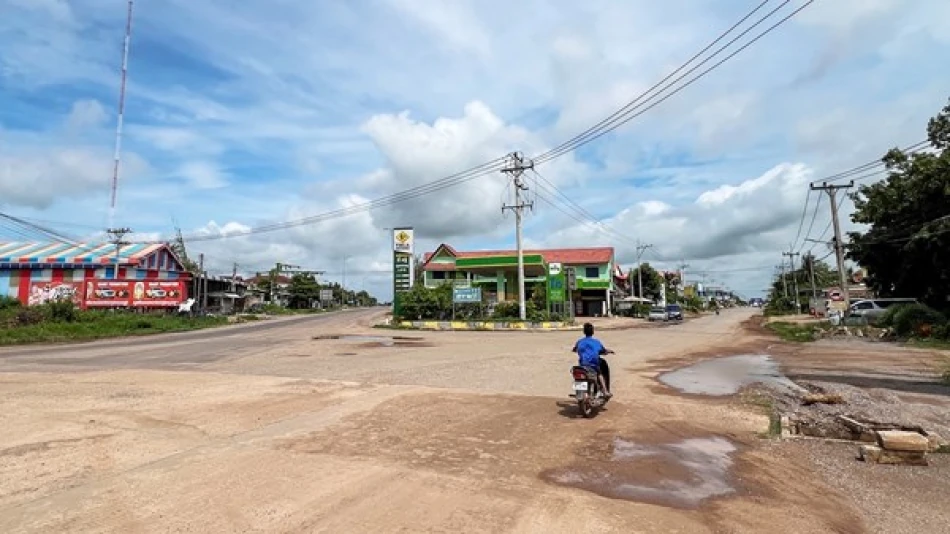
UN Urges Thailand and Cambodia to Uphold Ceasefire, Promote Regional Stability
UN Pushes Cambodia and Thailand to Honor Fragile Ceasefire as Border Dispute Exposes Colonial Legacy
The United Nations has called on Cambodia and Thailand to fully implement their ceasefire agreement following the deadliest border clash in over a decade, which killed at least 43 people and displaced 300,000 residents. The five-day conflict highlights how colonial-era boundary demarcations continue to fuel territorial disputes across Southeast Asia, threatening regional stability and economic integration.
Ceasefire Holds Despite Deep-Rooted Tensions
UN High Commissioner for Human Rights Volker Türk emphasized Wednesday that both nations must respect the ceasefire "fully and in good faith" while diplomatic efforts address the root causes of the conflict. The truce, brokered during a meeting between Thai and Cambodian leaders in Malaysia on Monday, has so far held as military commanders from both sides convened Tuesday to discuss mechanisms for maintaining the peace.
Some displaced residents along the disputed border have begun returning to their homes, though the situation remains precarious. The majority of casualties were civilians, underscoring how territorial disputes in densely populated border regions can quickly escalate into humanitarian crises.
Colonial Boundaries Fuel Modern Conflicts
The current dispute stems from boundary demarcations established during French colonial rule over Indochina, creating a familiar pattern seen across former colonies worldwide. The 800-kilometer border between Cambodia and Thailand was drawn by colonial administrators with limited consideration for local communities or natural boundaries, leaving ambiguous zones that continue to generate friction.
This mirrors similar post-colonial boundary disputes across Africa and Asia, where artificial borders imposed by European powers have become flashpoints for modern conflicts. The Cambodia-Thailand case demonstrates how historical grievances can suddenly erupt into violence, even between nations with otherwise cooperative relationships.
Economic Stakes Behind the Standoff
Beyond historical grievances, the border dispute carries significant economic implications for both countries. The contested areas may contain valuable natural resources, while secure borders are essential for the cross-border trade that has grown substantially as both economies integrate with regional supply chains.
Thailand and Cambodia are both members of ASEAN, which has prioritized economic integration and conflict prevention. The violence threatens the bloc's reputation for peaceful dispute resolution and could complicate ongoing efforts to present Southeast Asia as a stable alternative to more volatile regions for international investment.
Regional Implications for ASEAN Unity
The conflict tests ASEAN's principle of non-interference and its ability to mediate disputes between member states. Malaysia's successful role in brokering the ceasefire demonstrates the potential for regional diplomacy, but the underlying territorial issues require sustained international attention to prevent future escalations.
The displacement of 300,000 people also strains resources in both countries and highlights the human cost of unresolved territorial disputes. Swift resolution is crucial not only for the affected populations but also for maintaining Southeast Asia's trajectory toward greater integration and prosperity.
The international community will be watching closely to see whether this ceasefire can evolve into a lasting settlement, or whether the colonial-era boundaries will continue to generate instability in one of Asia's most economically dynamic regions.
Most Viewed News

 Layla Al Mansoori
Layla Al Mansoori






